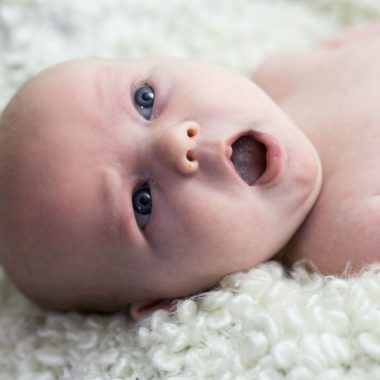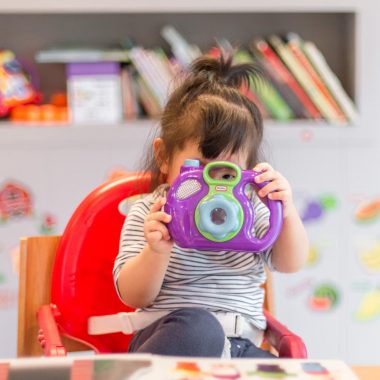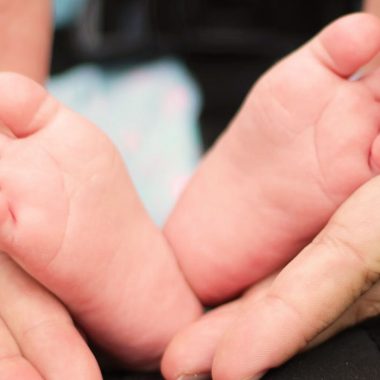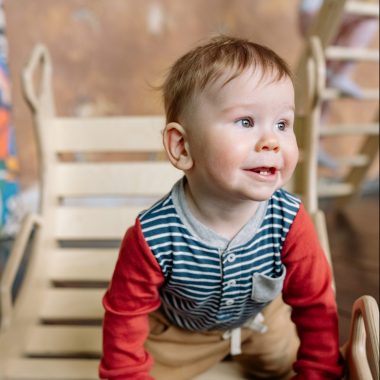Hey fellow parents, guardians, and caregivers! While parenting is a joy and a heartwarming journey, it comes with its fair share of struggles too. One of the many fears that parents face when welcoming a newborn into the world is the health of their little one.
Now, being parents ourselves, we get it – parenthood is a whirlwind of emotions, doubts, and endless Google searches. We all want what’s best for our little ones, and that includes being clued in on any challenges they may face along the way.
When we talk about health, it encompasses all aspects of health – mental, physical, psychological, and more. Today we’re delving into a topic that hits close to home: recognizing the early signs of intellectual and developmental disabilities (IDDs) in our bundles of joy.
So, grab a seat, maybe a snack (because let’s be real, parenting runs on snacks), and let’s chat about something that matters. Because here’s the thing: we’re not alone in this journey. Together, we can navigate the twists and turns of parenthood and give our kids the love, support, and understanding they need – no matter what challenges come our way. Let’s dive in!
Understanding Intellectual and Developmental Disabilities (IDDs)
Before we dive into the signs, let’s briefly understand what intellectual and developmental disabilities encompass.
Intellectual disabilities involve limitations in intellectual functioning and adaptive behaviors, while developmental disabilities affect a person’s physical, learning, language, or behavioral areas of functioning. These disabilities can range from mild to severe and can significantly impact an individual’s daily life.
So what are some early signs to look out for that can help parents understand their children better?
Delays in Milestones
Every baby develops at their own pace, but significant delays in meeting developmental milestones such as rolling over, sitting up, or crawling may signal potential developmental concerns.
For example, if your baby hasn’t started babbling or making eye contact by a certain age, it could be worth discussing with your pediatrician to rule out any underlying issues.
Lack of Eye Contact
Eye contact is a fundamental form of communication and connection, and babies typically begin making eye contact within the first few months of life. A lack of eye contact could indicate a variety of developmental issues, including autism spectrum disorder or vision problems.
It’s essential to observe your baby’s interactions and discuss any concerns with your healthcare provider.
Limited Social Interaction
By nature, babies are social beings who enjoy interacting with caregivers and others around them. If your baby shows little interest in engaging with people or seems indifferent to social stimuli, it could be a red flag for developmental delays or disorders.
Pay attention to how your baby responds to social cues and seek professional advice if you notice consistent patterns of disinterest.
ALSO READ: Understanding Fine Motor Skills Development in Children
Difficulties with Feeding or Digestion
Feeding is a fundamental aspect of a baby’s development, and challenges with feeding or digestion can be early indicators of underlying issues. For instance, difficulty swallowing, excessive spitting up, or refusing to eat may point to oral motor delays or gastrointestinal problems. It’s crucial to monitor your baby’s feeding habits and consult with a pediatrician if you have concerns about their nutritional intake or digestive health.
Unusual Motor Skills
Motor skills encompass both gross motor skills (like crawling and walking) and fine motor skills (such as grasping objects and picking up small items). Any noticeable differences in your baby’s motor development, such as stiffness, floppiness, or asymmetrical movements, should be investigated further. These differences could be signs of motor delays or neuromuscular disorders that require early intervention and support.
Communication Delays
Communication begins long before babies say their first words, as they use gestures, facial expressions, and vocalizations to express their needs and desires. If your baby shows limited interest in making sounds, gestures, or attempts at communication, it could be an early indication of speech or language delays.
While it’s normal for babies to babble and coo, a lack of vocalizations or gestures could signal potential communication delays. Keep an eye on your baby’s communication attempts and don’t hesitate to seek guidance from a speech-language pathologist or pediatrician if you have concerns.
By recognizing these early signs and seeking professional guidance when needed, parents and caregivers can play a proactive role in supporting their baby’s development and ensuring they receive the necessary interventions and services to thrive.
Sleep Disturbances
While occasional disruptions in sleep are normal for babies, persistent or severe sleep disturbances may warrant further attention. Children with certain intellectual or developmental disabilities, such as autism spectrum disorder (ASD) or attention-deficit/hyperactivity disorder (ADHD), often experience difficulties with sleep.
These may manifest as frequent nighttime awakenings, difficulty falling asleep, or irregular sleep patterns. Additionally, sleep disturbances can exacerbate existing behavioral challenges and impact a child’s overall well-being. If you notice persistent sleep problems in your child, it’s essential to discuss them with your pediatrician or a sleep specialist to explore potential underlying causes and develop appropriate management strategies.
ALSO READ: Sleep Problems In Children With Special Needs
Early Detection and Intervention
Early detection of intellectual and developmental disabilities is crucial for accessing appropriate interventions and support services. If you notice any of the aforementioned signs or have concerns about your baby’s development, don’t hesitate to reach out to your pediatrician.
Early intervention programs can significantly improve outcomes for children with disabilities by providing therapy interventions and resources tailored to their needs.
Using Baby Monitors for Early Detection
In today’s digital age, baby cameras have become a common tool for monitoring infants while they sleep or play. However, their utility extends beyond simple surveillance.
Baby cameras equipped with advanced features such as motion detection, night vision, and two-way audio can be invaluable for parents of children with intellectual and developmental disabilities.
Here’s how baby cameras such as Invidyo can assist in early detection:
- Continuous Monitoring: Invidyo allows parents to observe their baby’s behavior in real-time, enabling them to notice any concerning signs or behaviors.
- HD Night Vision: Invidyo provides parents and caregivers with high quality night vision so that they can observe their baby’s sleep habits.
- Daily Summaries: Invidyo’s 24 hour daily summaries highlight the most important aspects of the past day that can assist parents with pinpointing any irregularities in their child’s routine or habits.
- Remote Viewing: Parents can access live feeds from their baby cameras via smartphone apps, even when they’re away from home. This feature is particularly beneficial for parents who work outside the home or have caregivers assisting with childcare.
- Automated Sleep Tracking: Invidyo’s AI-Powered algorithm automatically records sleep and wake times as well as movements during sleep and nap times that can allow parents to detect any sleep problems their child may have.
- Peace of Mind: Baby monitors offer parents peace of mind knowing they can keep a close eye on their baby’s well-being, especially if their child has special needs or medical concerns.
- Cry & Cough Detection: Invidyo gives you an automated cough and cry count that parents can use to understand their child’s developmental progress.
LEARN MORE ABOUT INVIDYO BABY MONITOR!
Early detection of intellectual and developmental disabilities in babies is essential for providing timely interventions and support. By familiarizing yourself with the early signs and leveraging tools like baby monitors, you can play an active role in your child’s development and well-being.
Remember, every child is unique, and early intervention can make a significant difference in your baby’s journey towards reaching their full potential.
References: American Academy of Pediatrics, Centers for Disease Control and Prevention, Mayo Clinic, National Institute of Child Health and Human Development, Child Mind Institute, Gillette Children’s Specialty Healthcare, Penn Medicine Lancaster General Health, HealthyChildren.org










